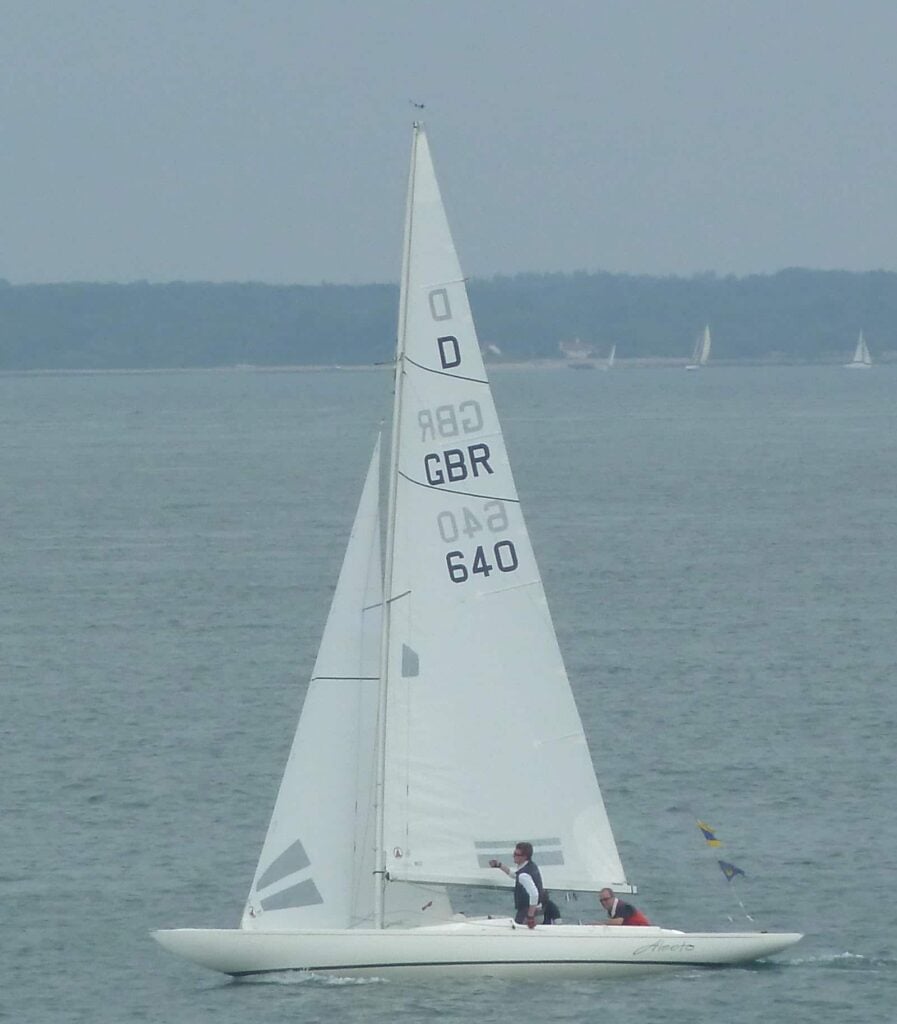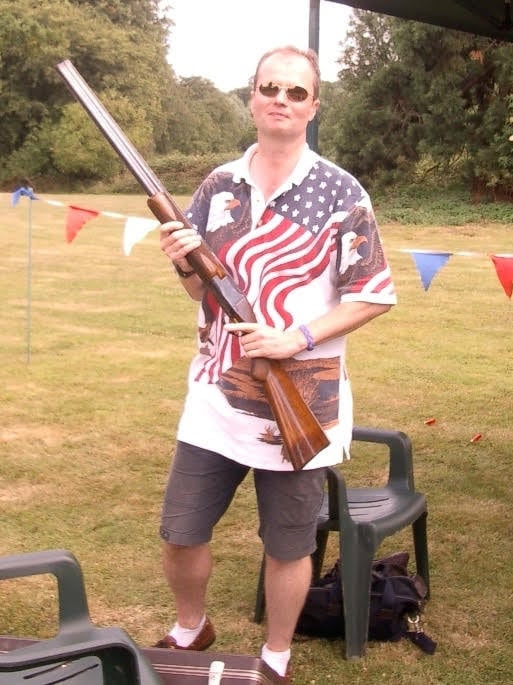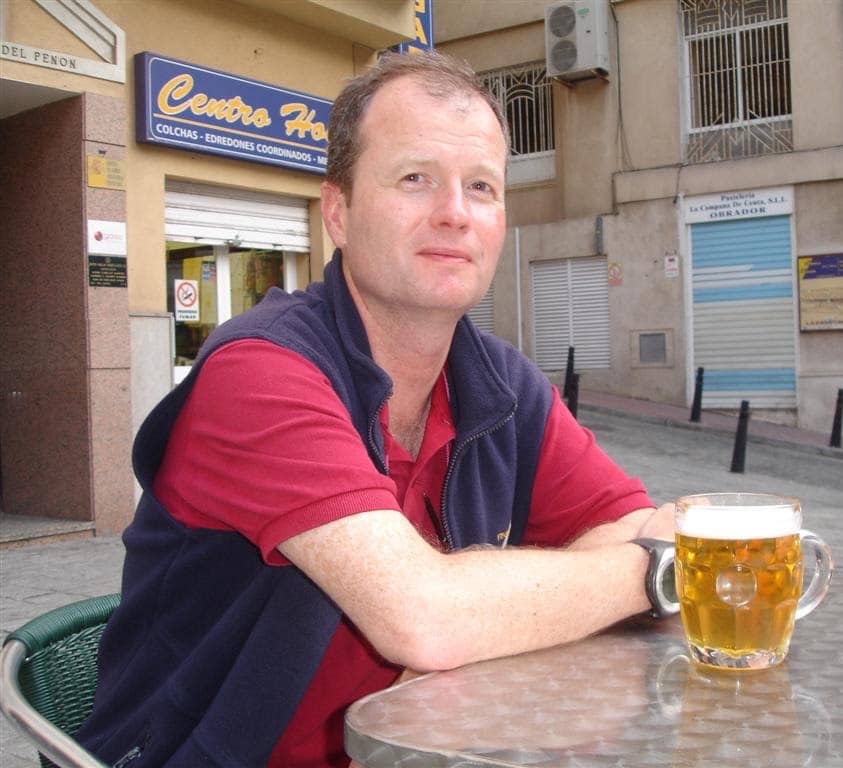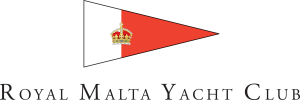Charles Cronin was elected to the Royal Malta Yacht Club Committee during the last AGM. Following his election, he was appointed Hon. Treasurer. Charles has been an active member of the Club for the past four years –ever since he moved to Malta. Interestingly, Charles’ links to Malta go back to a bit more than the past four years. We took the opportunity to ask him a few questions to learn more about this, why he chose Malta as his home, what made him run for Committee amongst others.
Here goes!
Tell us a bit about yourself …
I am a Londoner by birth, from the village of Marylebone, where I have lived for most of my life.
Professionally, I have worked in financial services for over 20 years, and I am a Chartered Financial Analyst (CFA). In between then and today, I was a Westminster City Councillor, where my last role was as Cabinet Member for Transport and Infrastructure. There was never a dull moment, and I learnt a huge amount about running a big business. I migrated into financial regulation policy development in the EU, just at the beginning of the ‘last’ financial crisis, with CFA Institute, and later with the Jersey Financial Services Commission. I then stepped into financial supervision and compliance in Malta.
I count myself as being very lucky to have travelled to many places around the world, most often through my work. I have had a Waldorf Salad in the Waldorf Astoria, and a Singapore Sling at the Long Bar in the Raffles Hotel. But possibly my most magical memory is looking across the Dead Sea on a still evening and watching the mountains opposite reflected in what appeared to be a sea of mercury.
When did you move to Malta? What was the reason for making Malta your home?
I moved to Malta nearly four years ago. My link with Malta goes back to when I was very small, indeed I learnt to swim in the pool at the Phoenicia Hotel. The connection was that my father as a Member of the UK Parliament, and a surgeon was asked by former Prime Minister Dom Mintoff to chair a committee that wrote a report on health care provision in Malta. This report became the blueprint for Malta’s NHS.
By the time I was born, it had become a family institution to come to Malta every year for extended breaks, which continued until the mid 1970s. My father also held the defence brief, so we would always visit the British military bases and go to sea with the Royal Navy on every visit. As a small boy it was a dream come true.
Later, I had the opportunity to live and work wherever I chose. I decided that I wanted to live where people go on holiday, and Malta came back into my mind. After several reconnaissance visits, I set my mind on moving to Malta. Unfortunately, I couldn’t find a suitable job, so I island hopped to Jersey, which was two steps in the right direction: south of London, and a holiday destination. While living in Jersey, I bought my house in Dingli in 2014, with the idea of having a holiday base and a home for my retirement. All was going well until the Brexit referendum. The referendum result meant I had to bring my plans forward, quit my job in Jersey, and move to Malta to secure my residency and ability to live in the home that I had bought. To say the least, the last four years in Malta haven’t been dull.
How long have you been sailing, and what is your preference – inshore or offshore sailing?
I understand from a very early age; I heard my father took me on his boat when I was less than a year old. But as crew, probably from the age of seven. My parents bought me my first boat, a Cadet class dinghy for my 10th birthday.
The sailing that I prefer is one-design, competing on Olympic style sausages and triangles. I used to own an International Dragon and raced occasionally on the international circuit in Douarnenez and Cannes. If the 80 plus boat starts were hairy, rounding the windward mark was at a different level of stress altogether, with the convergence of those 80 plus boats all capable of arriving at the same time. Thank goodness for the racing rules.

On offshore, for several seasons, I completed many RORC races across the English Channel in a J109 called Jibe, and through this I earned my RYA Yachtmaster Offshore certificate of competence. The camaraderie of the skipper and crew was great, though off watch sleeping on the windward rail is not my favourite pastime. My preference after a day’s racing is a great dinner, and a dry comfy bed – on land.

Now I am in Malta, I am working to combine the best of both one design inshore and offshore.
Last Christmas, as a present to myself, I bought a J92, which due to the lockdown is currently stuck in Marseille. There are a few J92s in Malta, we are hoping through the efforts of Mark Camilleri and Tom Ripard to organise racing as a group in Royal Malta Yacht Club events.

Separately, I am working on a project to lay four marks in the shape of a diamond off Sliema, which will support racing for the SB20s and the J92s, Club coastal races, and may draw visiting yachtsman for winter training.
What is your favourite sailing moment?
May I offer two?
Before I owned a Dragon I owned an International Etchells, quite a light displacement three man 30 feet long keel boat, capable of planing downwind. In a fresh South Westerly on the Solent, we rounded the top mark, hoisted the kite, and broke into an almost constant plane for over 2 miles. Our bow wave moved right aft and broke below the mast base, and then came up each side in a curling curtain of water at about shoulder level. The sight, the sound, and the feeling you were riding a racehorse were incredibly exhilarating. I almost had a crew rebellion when we had to take the kite down at the leeward mark, they just wanted us to keep going forever. It was an epic day.
My second favourite occasion was with my ex-wife and small children, we had chartered a boat to sail around the Ionian Islands. One afternoon we pulled into Fiskardo, a very pretty fishing village on Cephalonia; we moored stern to the quay, just opposite the best restaurant in the village. In the evening I tried to book a table for dinner, unfortunately the owner told me that the place was fully booked. But with an eye on business and seeing where we were moored, he said no worries, they would set a table in the cockpit of our boat. What followed was full restaurant service in the cockpit of quite a small boat, with waiters nimbly coming back and forth up the passerelle, with tablecloth, cutlery, and candles, followed by and excellent meal and complimentary limoncello. It was a magical evening, with no washing up.
Any other hobbies that you enjoy doing, apart from sailing?
I run to keep fit. I would like to resume my shooting, but there isn’t much to shoot which is edible in Malta. So, it will be clay pigeon shooting for me.

What was the reason that you ran for Committee?
There are quite a few challenges facing the Club, membership engagement as demonstrated by low participation in our races, social events, people hanging out at the Club, and votes cast to select the Committee. It’s not healthy that the largest number of votes cast to a member of the Committee in 2020’s election was only marginally more than 10% of the membership. What of the voice of the other 90%? It’s for this reason that I put my name forward to offer a fresh pair of eyes to address these issues. Hence, my ambition is to get the Club to further engage with its membership and to establish what they want, then further delivering it to drive the membership value proposition. Initiatives like the SB20s led by Catherine Hurley and supported by Adrian Gauci Borda demonstrate that there is no substitute for personally working your network, to drive participation and to get boats out on the water.
While everything for the moment is effectively on hold because of Covid-19, as I mentioned above, we are trying to do something similar to the SB20s with the J92s. If we can get three J92s competing in our Malta-Sicily races, that could expand fleet entries by over 50%.
We must be inclusive of the cruisers, encourage them to join in the fun with flotilla events, and everyone can benefit from lectures on sail trim, the rules, and how to fix your diesel; all followed by dinner in our marvellous Club surroundings.
How about live music on a Friday night? I think there is plenty of opportunity, it just takes some energy, enthusiasm, and execution to get things going.
What experience will you bring to the role of Honorary Treasurer?
There are two aspects to answering this question, firstly my credentials for the Committee, and secondly to serve the post of Honorary Treasurer. For the former, I was the Honorary Treasurer of the British Dragon Association, which in the UK has approximately 115 boats and 150 members, from 2010 to 2013. I was Captain of the Lymington Etchells fleet from 1992 to 1994, and Vice-Captain of the same from 1990 to 1992. During my tenure in these roles, I drafted and presented the accounts of the British Dragon Association, reorganised the membership list and direct debt payment system. Organised and led the discussions on hosting the International Dragons premier UK event the Edinburgh Cup in 2014. As Etchells Fleet Captain and Vice-Captain, I organised and led discussion for the British Open Championships and regular Saturday racing through the Summer season. I am also a member of the Royal Thames and Royal Lymington Yacht Clubs, which provides knowledge of how other prestigious clubs function and what they offer to their membership. In addition, I have plenty of committee experience from being a member of Westminster City Council and having sat on several panels in financial regulatory fora.
On the latter I am a Chartered Financial Analyst who by professional training has to be at home with financial statements and how businesses work. Plus, as a member of that professional body I am committed to high standards of professional conduct and ethical behaviour.
So, in bringing the two threads together, I do believe that I have something to offer the Royal Malta membership.
If you had to change anything to the Club, what would it be?
To address the issues above, I believe the Club needs to refine its offering to its members. It can only do this by knowing more about its members. Currently, we do not have a Customer Relationship Management software system, so we know very little about our membership. For example, should we be offering the members circuit training, or senior stretches, or both? There is huge potential, the Club has around 650 members, of which around 60 regularly use the Club house, and this swells up to around 150 at paying ticketed events. That leaves a target market of between 400 and 500 members who could be making use of the Club and its facilities in their leisure time.
‘Bureaucracy’ is seen by many as a dirty word; however, the Club should further improve its systems of governance, rules and procedures, performance management, accountability, and professionalism to match the scale of its operations. Currently, I am leading a sub-committee drafting the Club bye-laws; after that the same team will be working on purchasing procedures. The former sets standards, values, and expectations for our members, so that they can feel they are at home with an extended family of like-minded people. The latter focuses on the Committee’s role as steward of the member’s resources and will establish processes for the purchasing of goods and services, to better align the Club’s investments with delivering member value.
What is the one thing that you definitely wouldn’t want the Club to change?
I like the burgee, and the privileged ensign does look rather grand. But seriously everything we do must be up for review and scrutiny. We need to know that what we do delivers member value, or could be done better, or should we be doing something different. It’s an ongoing process that will take several years to complete in its first round. I also appreciate that in the Club’s culture that gradual change will work best. But there are a number of quick wins that could transform the member experience. In between here and then, I must work to gain the confidence and trust of my Committee colleagues and build a consensus of support for change where change harnesses opportunity.
Being in quarantine, one had to adapt to doing things differently – some would be temporary, others might be taken up permanently. From your experience throughout quarantine, is there something that you will be doing differently?
The Covid-19 pandemic has heightened everyone’s awareness on how to avoid catching an air born virus.
For me, I will spend more time washing my hands, and when flying (for when we fly again) to try very hard to not touch my face or eat any finger food.
My personal OCD tip for flying, is while in your seat to turn on and direct the air vent above you head to blow away any approaching germs. I don’t know if it works, but it feels like it might.
What are you looking forward to the most once we get back to ‘normal’?
Sipping a pint of Cisk and eating an octopus salad with friends at the Club; and to finally enjoying last year’s Christmas present, by getting my boat over from Marseille.


